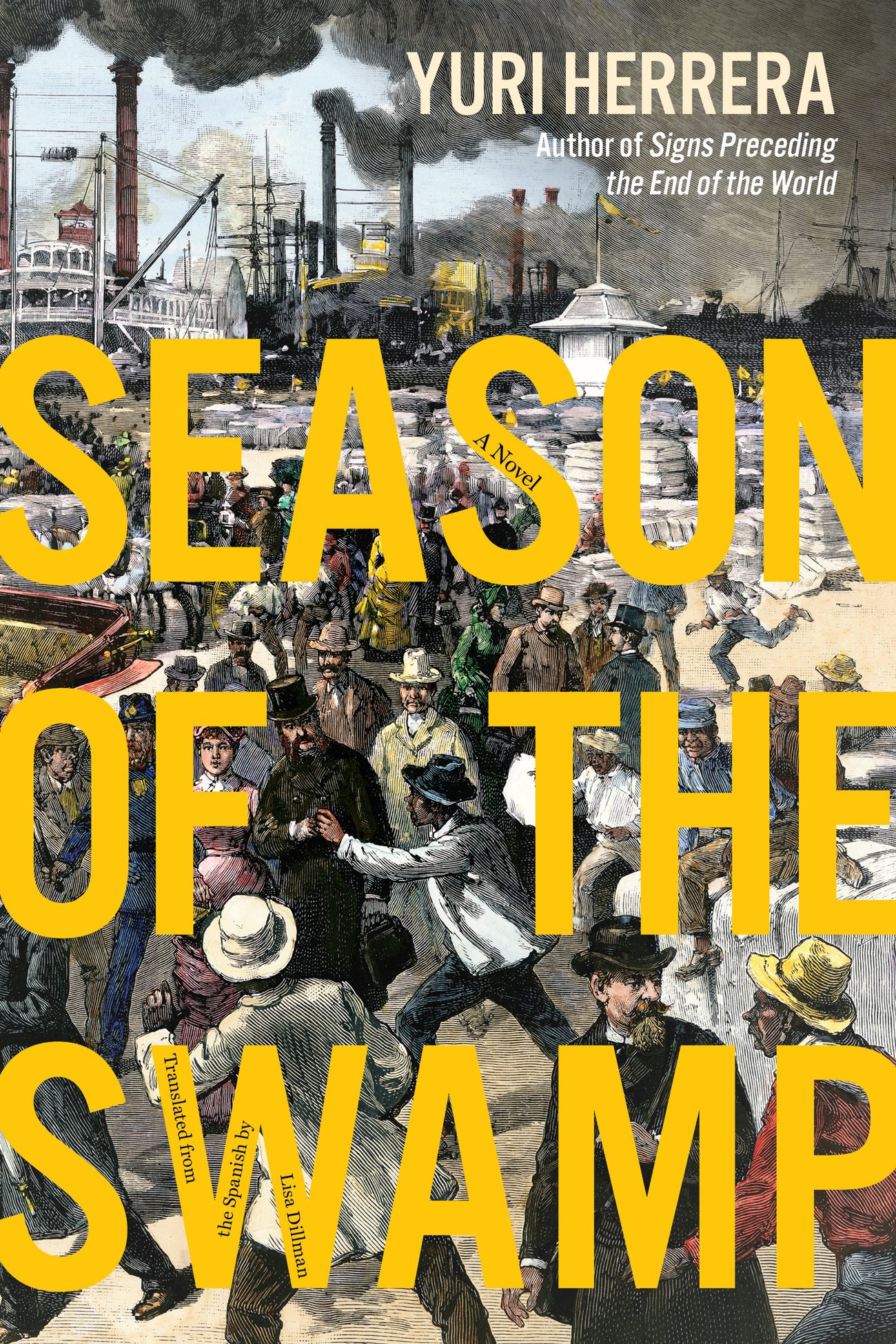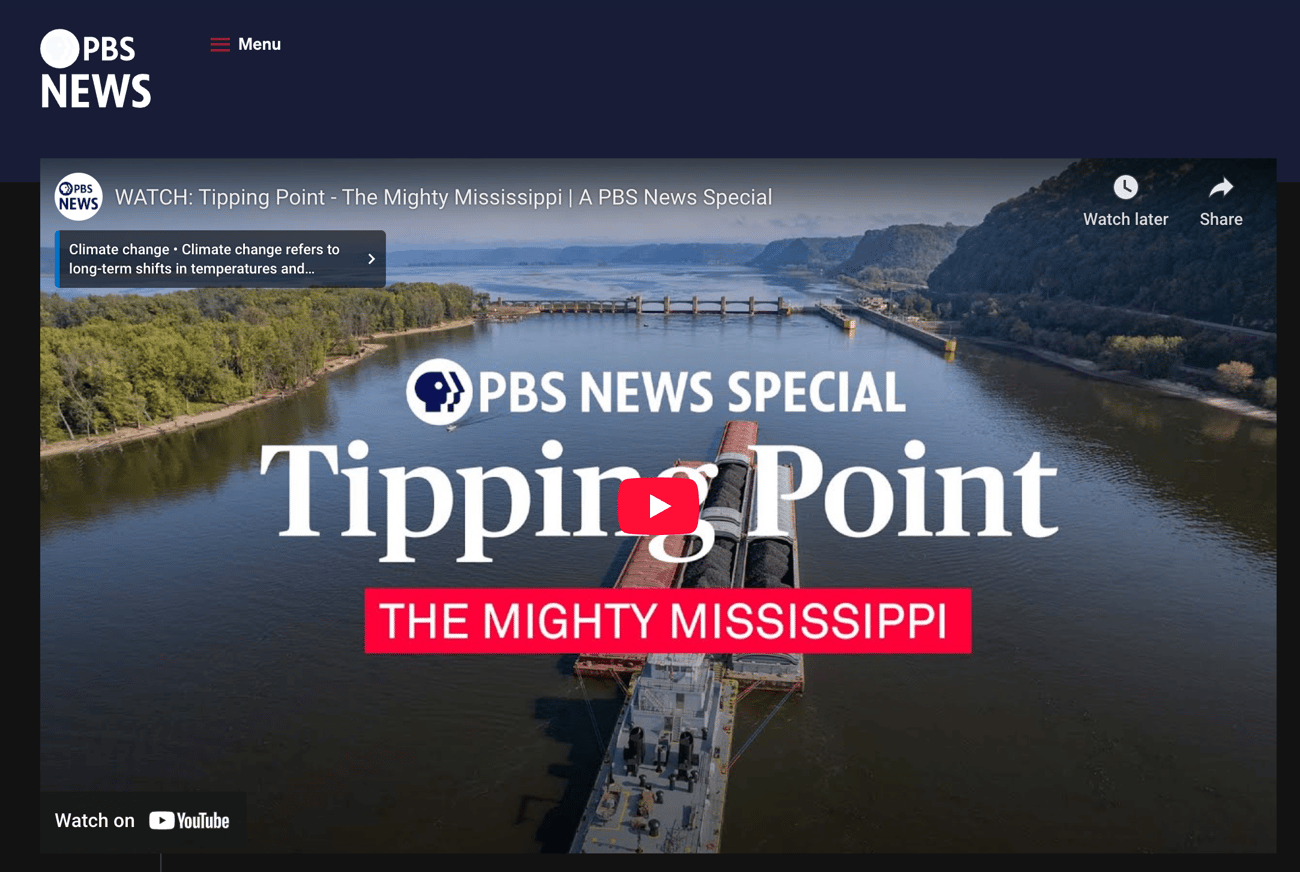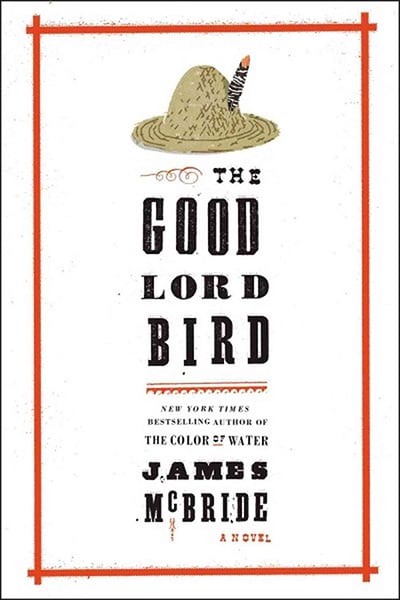|
What we're reading (and watching) |
 |
|
Books and shows around the Basin. Graphic: Michael Crowe |
|
Hi ,
Did you read any good books or watch any good shows this summer? This week, we've got a roundup of media we're enjoying here at the Ag & Water Desk.
Our team shares some favorites below. From the swamps of New Orleans to Minnesota's unique river laboratory, we hope you find something interesting to accompany you for any last-minute explorations before fall arrives.
|
|
|
"Season of the Swamp" by Yuri Herrera |
|
|
|
 |
|
Courtesy Graywolf Press |
|
|
What I remember from the very first time I visited New Orleans was the specificity of the place. There is, I thought – correctly, I have determined, after many more visits – no place like it. It is a gift and a delight when a writer can capture that specificity on the page as Yuri Herrera does in his 2024 novel "Season of the Swamp."
The book opens in 1853, when Benito Juárez, who five years later will become the first Indigenous president and liberal reformer of Mexico, is sent into exile and makes his way to New Orleans. In his autobiography, he writes, "I arrived on the 29th day of [December]. I lived in that city until 20 June 1855, when I headed to Acapulco to lend my services to the campaign…"
|
|
|
|
That is all Juárez has to say about his 18 months in the city. Herrera fills that gap with an imagined history. While it's clear the author spent considerable time in historical archives, using old newspaper stories to capture the happenings in the city nearly 200 years ago, it's even clearer that Herrera, who teaches at Tulane University in New Orleans, is writing about a place he knows deeply.
Here he writes of Juárez walking through the city soon after arriving:
They zigzagged through the old quadrant, passed a theater with opera – Opera, he said, Verdi's Jerusalem – a daguerreotype business, a lot of places called coffeeshops where a lot of people were drunk, hungry dogs – one, two, three, four, five, six, ten, twenty, so many dogs – a fabric shop, a courthouse – mental note: courthouse – a social club. Finally they came to the edge of the old quadrant, crossed over to the other side, passed a square where a military contingent was practicing formations, and kept walking. Now it was not so much city-city as its spillover: there was more and more wild oak, more and more swamp.… It smelled different too, this was a defiant smell, water and detritus. The vegetation and the water and the snake were suddenly all defiant; and it was beautiful here, and it wasn't.
It's New Orleans of the 1850s, but it may as well be New Orleans today. When you capture the very heart of the place, the century is moot.
-Irina Zhorov, Assistant Director
|
Tipping Point: The Mighty Mississippi, A PBS News Special
|
 |
|
Tipping Point - The Mighty Mississippi, a new special from PBS. Screen capture courtesy PBS. |
|
In July, PBS aired an excellent special on the Mississippi exploring the many crises facing the river, with an eye for solutions and some excellent guests.
Readers of the Ag & Water Desk will notice topics we frequently cover: flooding, the Gulf dead zone, beaver impacts, and risks to petrochemical fence line communities. There is a great deal of depth to this special, but it also serves as an excellent primer on Basin issues and voices all along the river (including friend of the Desk Boyce Upholt).
I especially enjoyed learning about the research at the University of Minnesota's Saint Anthony Falls Laboratory, including work on blood flow in our hearts.
-Michael Crowe, Operations Manager
|
"James" by Percival Everett
& "The Good Lord Bird" by James McBride
|
|
|
 |
|
Courtesy Penguin Random House |
|
|
Summer is a time for letting my mind wander – through history, through character, and through landscapes familiar and strange. On break from teaching journalism and its discipline of factual verification, I often reach for fiction – but sometimes fiction rooted in historical facts.
I finally caught up with Percival Everett's "James" (2024) – required reading for anyone fascinated with the Mississippi River and its place in our cultural heritage. A retelling of Mark Twain's "The Adventures of Huckleberry Finn," the story is told from the perspective of Jim – or as he calls himself, James – the enslaved man who accompanies Huck on his river journey. The book, winner of this year's Pulitzer Prize for fiction, uses philosophy and irony as it skewers racist language and ideas.
|
|
|
|
The Mississippi River serves its familiar role as a portal to both deliverance and danger, while "James" deploys surprising twists on the classic story. I won't give away a major conceit of the book, but once you read it, you won't be able to hear tales of its era the same way again.
My library app's algorithms soon led me to "The Good Lord Bird" (2013) by James McBride, another journey to freedom narrated by an enslaved person, in this case a boy mistaken for a girl. Also set in the years leading up to the Civil War, this work of historical fiction follows the movements of abolitionist John Brown through Missouri and Kansas and on to Harper's Ferry, as told by Henry, who is forced to join the fight.
|
|
|
 |
|
Courtesy Riverhead Books |
|
|
The characters believe feathers from an ivory-billed woodpecker – a bird so large people would exclaim upon seeing it – bring good luck and understanding. As a young reporter, I covered purported sightings of the Good Lord Bird in an Arkansas swamp; later, ornithologists sadly concluded that the bird was, in fact, extinct.
Both books are masterful in their use of humor and history to highlight the absurdity and tragedy of slavery. Their familiar settings let me see my Midwestern home in a new light as we continue to reckon our past and our present.
-Sara Shipley Hiles, Executive Director
|
|
|
|
Let us know what you're reading and watching this summer; we love learning about new stories in the region.
For now, thanks for reading. More next week from across the Basin. |
|
|
|
Sincerely,
Michael Crowe
Operations Manager,
Ag & Water Desk |
|
|
|
|